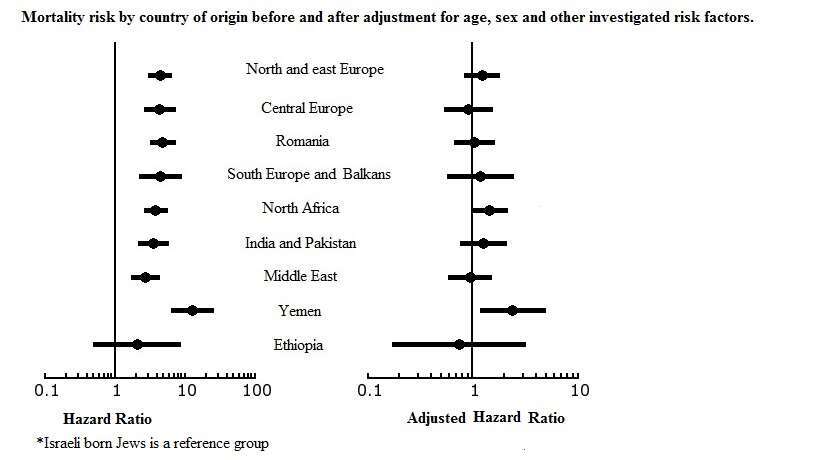Background: In the era of world globalization, many countries absorb immigrants. The association between immigration and health influenced by the socio-economic and cultural background of immigrants, their medical history and quality of medical care in the country of origin and the circumstances surrounding their migration and re-settlement. Hence, differences in cardiovascular morbidity between immigrants and natives might be expected.
Aim: To compare long-term post-AMI mortality among Jews of different origin, adjusting for background data.
Methods: A retrospective analysis of2362 post-AMI patients classified according to country of origin. Data were collected from computerized systems of Soroka University Medical Center including demographics, co-morbidities, clinical characteristics of AMI event, interventions and test results. Primary outcome: 10-years post-discharge all-cause mortality, adjusted for the investigated risk factors. Jews born in Israel were a reference group.
Results: During the follow-up period, crude mortality rate was higher among all groups compared to Jews born in Israel, except for Ethiopean born Jews. After adjustment for investigated risk factors, greater risk for mortality was found only for Jews born in North Africa and Yemen versus those born in Israel (AdjHR=1.45, p=0.058, AdjHR=2.38, p=0.017 respectively).
Conclusions: Patients’ origin is a possible risk factor of long term post-AMI mortality. The reasons for higher mortality in some groups might lie primarily outside the hospital setting, with a possible influence of genetic or/and environmental causes.


